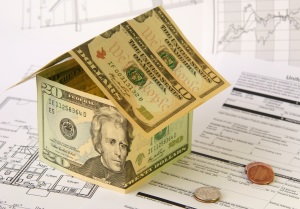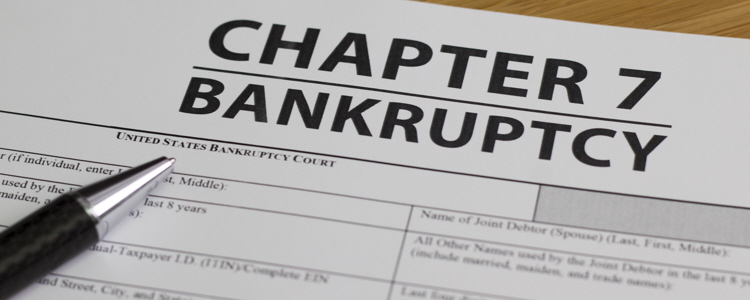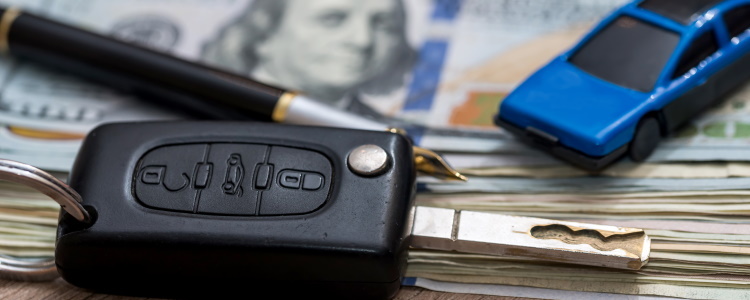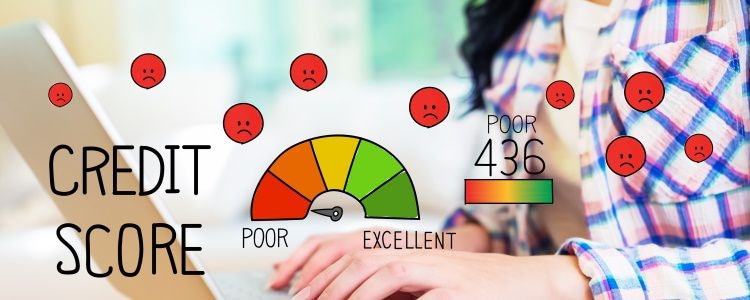A bankruptcy stays on your credit report for either seven or 10 years, depending on if you filed for Chapter 13 or Chapter 7. However, that doesn't mean that your credit has to stay down all that time. You can start rebuilding your credit after bankruptcy right away.
According to TransUnion, just under 10% of first-time bankruptcy filers will do so again. You can prevent that from happening to you with a plan. Rebuilding your credit after bankruptcy is a challenge, but it can be done through planning, persistence and patience.
Here are some steps that you can take to get started.
Get Your Finances In Order
 The silver lining attached to filing for bankruptcy: it presents you with an excellent opportunity to get your financial house in order. Before attacking a credit-building plan, you need to set your budget straight.
The silver lining attached to filing for bankruptcy: it presents you with an excellent opportunity to get your financial house in order. Before attacking a credit-building plan, you need to set your budget straight.
If you don't already have one, it's time to create it. List out all of your monthly expenses and compare it to your monthly income. You'll need to make sure all of your expenses are covered because you can't afford to make any late payments.
Part of your budgeting plan should be to get a great feel for all of your bill due dates. 35% of your FICO score is your payment history, so you'll need to make sure you are never late with a payment from here on out.
You also need to make sure that your budget leaves you with money left over that you can put toward savings. If it doesn't, you'll need to find ways to reduce your spending or increase your income.
Ideally, your budget accounts for a certain percentage of your income to be put into savings every month. Building up an emergency savings fund helps you prepare for the unexpected. You don't want to have to resort to credit cards or payday loans, as they can start a debt spiral at a time when you can't afford any setbacks.
Review Your Credit Reports
You get three free credit reports a year. Use them.
You are entitled to a complimentary copy of your report from each of the three primary credit bureaus every 12 months. If you have just been through a bankruptcy, you should get all of them to review.
Carefully go over your reports and look for:
- Errors.
- Missing and/or inaccurate information.
- Correctly reported information regarding the debts settled in your bankruptcy. Discharged debts should not be reported as outstanding, late, delinquent, or having a balance.
- Duplicate entries if you had a debt that went into collections.
- Outstanding judgments that should've been eliminated.
If you see misreported information, contact the lender in question. You can also file a dispute with the credit agency in question.
Get to the Actual Credit Building
There's no secret sauce to improving your credit score. It's all about putting in the time, effort and energy needed to work on the factors that make up your rating. Here are two things you need to make sure you are doing:
- Make all of your payments on time.
- Keep your credit card balances below 30% of their limits, preferably eliminating them altogether.
As you can see, it takes credit to build credit. If you don't have a credit card following your bankruptcy, you should try to get a secured credit card. A secured credit card is great because almost anybody can get approved for one and it represents a safe way to build credit.
They work exactly like regular credit cards. The main difference is that you must deposit your own money into them. You deposit money in an account, and then receive a card with that amount as a limit.
Secured credit cards are available through most banks. If you are looking for one, make sure to watch out for two things. (1) Always ask and make sure the lender reports your payments to the credit bureaus. You can't build credit unless they do so. (2) Watch out for fees. Secured credit cards may have high inception and/or annual fees, so shop around for one with favorable terms.
A good plan is to charge one expense per month to your secured credit card - something that you know you can pay off. For example, you could charge your gas to the card and then pay it off at the due date. This way, you don’t build up a balance and you can still improve your score.
Another Way to Build Credit
A subprime auto loan is another way you can build credit if you need a car following a bankruptcy. If you make all of your loan payments on time and in full, your score can improve big time over the course of the loan.
Auto Credit Express helps people dealing with credit issues, such as a past bankruptcy, find financing. We connect car buyers with local auto dealerships that are equipped to handle unique credit situations.
Best of all, our service is free and it doesn't put you under any obligation. Get started by filling out our secure car loan request form today.
















